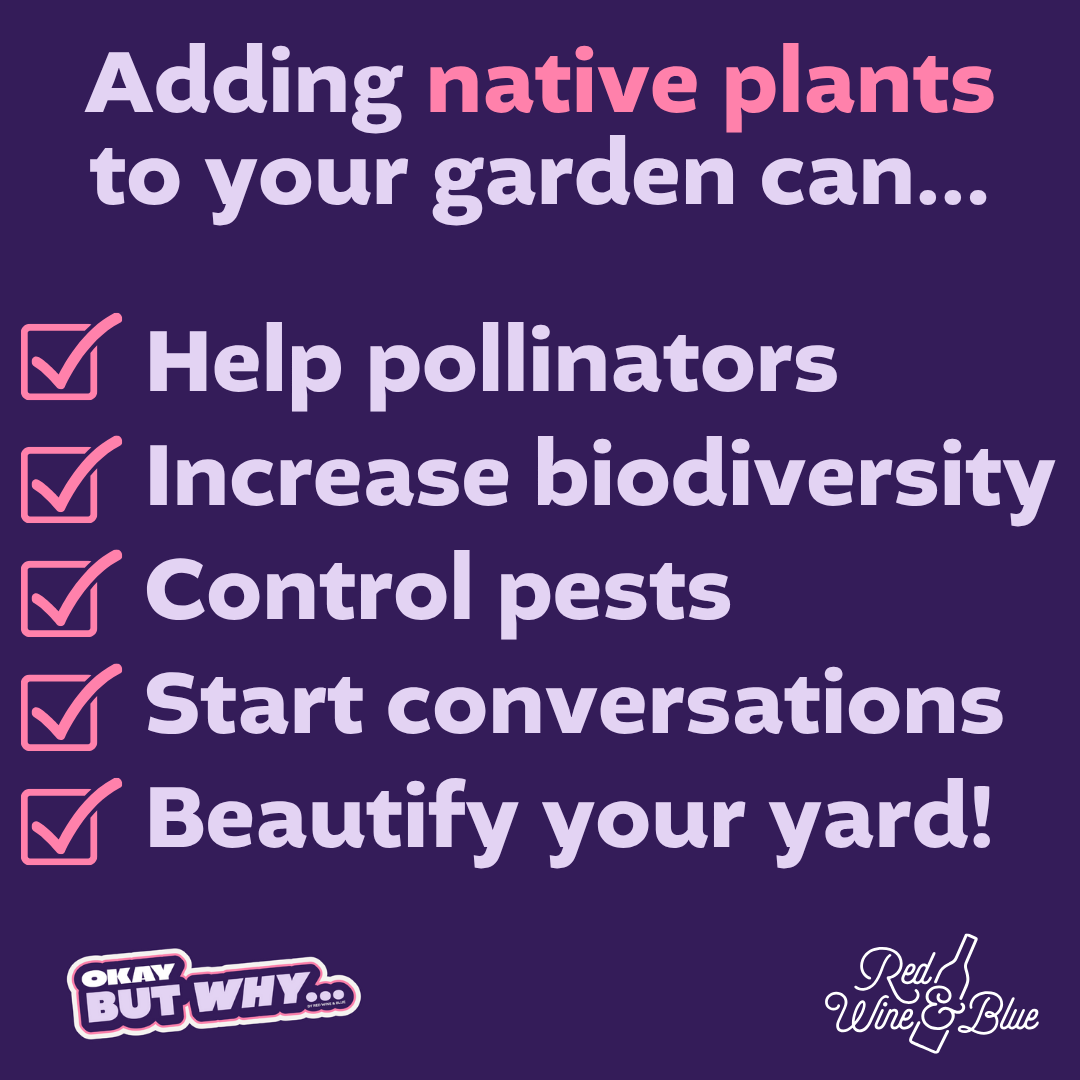
Okay, But Why Does Your Garden Matter?
This past June was the third hottest on record, and July is on pace to be record-setting as well.
This isn’t a fluke, it’s climate change. And it’s not just us saying so – a recent analysis of more than 11,000 studies showed that 100% of scientists agreed that human-caused climate change is real. We already know what it takes to slow the warming of the planet – for starters, stopping pollution and ending our reliance on carbon-producing fossil fuels.
But the Trump administration is rolling back what progress we’ve made toward green energy. Since the start of his second term, his administration has fired hundreds of climate and weather scientists. He’s cut major climate programs, including gathering information from satellites that help us understand how bad the problem is. He also wants to start logging and drilling for oil on national parks full of native plants and animals and roll back protections for migratory birds.
Think Global, Act Local
This might feel overwhelming but there is something else small that you can do that can make an impact, and it’s right in your backyard!
If you have a backyard garden, you’re probably enjoying beautiful flowers and harvesting more tomatoes or zucchinis than you know what to do with. But how often have you thought about the bugs in your garden?
One of the linchpins of our environment is the pollinator – insects like bees and butterflies that transfer pollen from plant to plant. Pollinators are essential to our environment, because they help plants to grow and start new plants. And plants are essential because they take in carbon dioxide and release oxygen, cleaning the air of pollutants and actually cooling the planet.
Pollinators are also essential to humans, because they help grow the food we eat. In fact, bees and other pollinators are responsible for one out of three bites of food we take!
But because of climate change, clear cutting, pesticides, and other harms, pollinators are rapidly disappearing. A 2017 report done for the Center of Biological Diversity found that nearly 1 in 4 species of native bees are now at risk of extinction. Monarch butterflies, meanwhile, have declined more than 80% in the last 30 years. And the more pollinators we lose, the worse our environment becomes, which is why we have to provide a home that helps bees and butterflies to flourish.
The Need for Native Plants
You may be saying, wait a minute. I have a huge rose garden, why haven’t I seen more bumble bees and monarch butterflies in the area?
The answer lies in the kind of garden you have.

Pollinators don’t visit just any type of flower or plant – they have very specific diets that evolved over millions of years to adapt to the plants that are native to your area. So it’s very important that you find out what your area’s native plants are and devote part of your garden to them, whether its milkweed and purple coneflower in the South, foxglove and black-eyed susans in the Midwest, or poppies on the West Coast.
The best part is that native plants are most comfortable in the soil and temperatures in your backyard, so you don’t have to water or fertilize them nearly as much as non-native plants, and they are even naturally resistant to pests so you don’t have to use poisonous pesticides that are harmful to pollinators.
You can make a big difference with a small garden just by planting more native species that are good for pollinators. You can take lawns – which are basically desserts for pollinators and soak up a ton of resources – and turn them into meadows of native flowers. You can also keep piles of leaves in a few places for insects like fireflies to nest, and encourage your neighbors to do the same. If you have kids or grandkids, you can do fun summer projects like creating native seed bombs to plant or give out as gifts.
If we all pitch in and do our part, we can transform not just our own backyards but the whole world. And that is why your garden matters.
